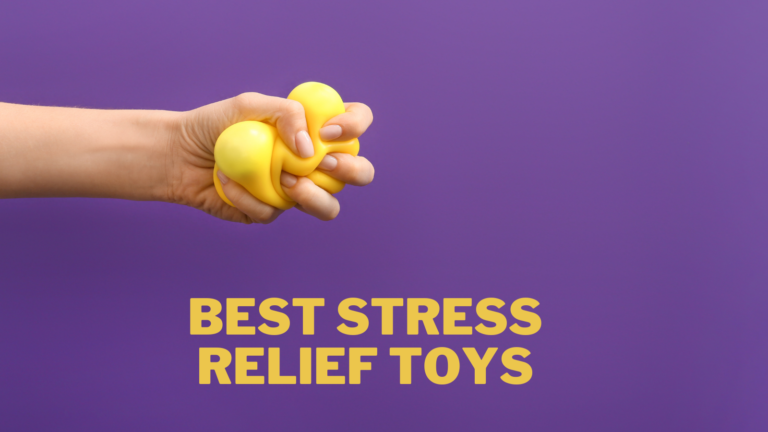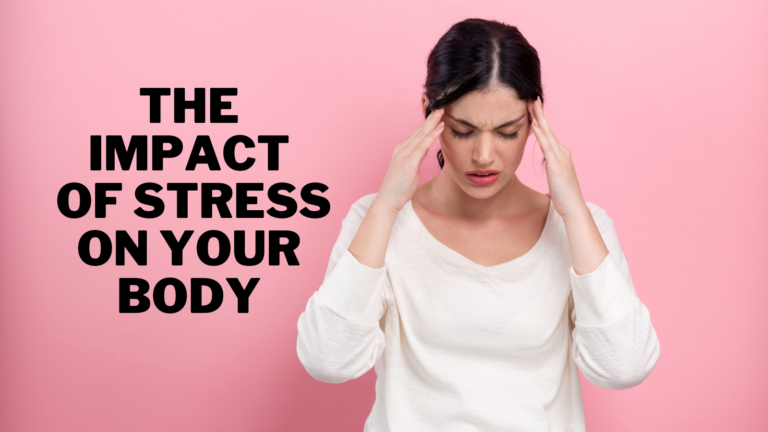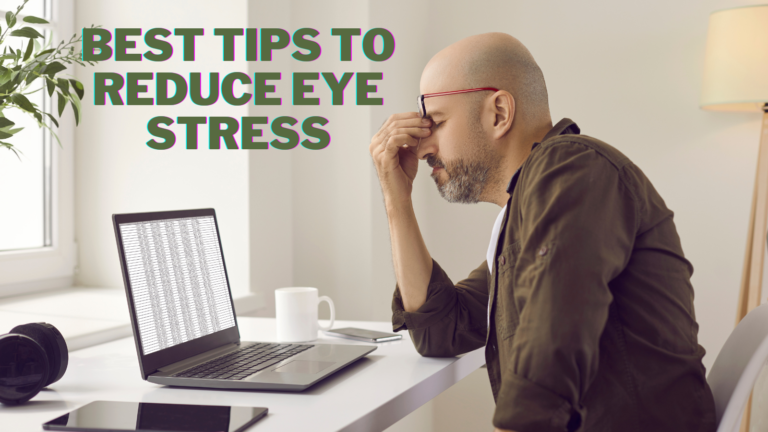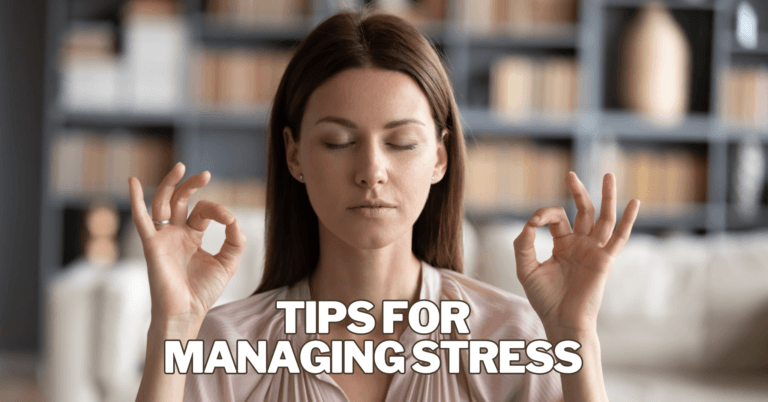How To Relieve Tension Naturally
How To Relieve Tension Naturally
In today's fast-paced world, stress and tension have become ubiquitous, damaging our physical and mental well-being.
Fortunately, various natural methods help alleviate tension and promote relaxation without medication or invasive procedures.
Exploring how to relieve tension naturally unveils many holistic techniques to restore balance and harmony in today's fast-paced world.
This article will discuss several useful methods people can use to control and lower their stress levels, promoting serenity and tranquillity in the face of everyday obstacles.
Whether through mindful meditation, gentle exercise, or herbal remedies, embracing natural tension-relief methods empowers individuals to reclaim control over their health and well-being, promoting a more balanced and fulfilling life.

Importance Of Relieving Tension Naturally
Relieving tension naturally is vital for maintaining overall well-being in today's fast-paced world. From work pressures to personal challenges, stress can accumulate and affect mental and physical health.
Therefore, understanding the importance of natural tension relief methods is crucial for achieving a balanced and fulfilling life.
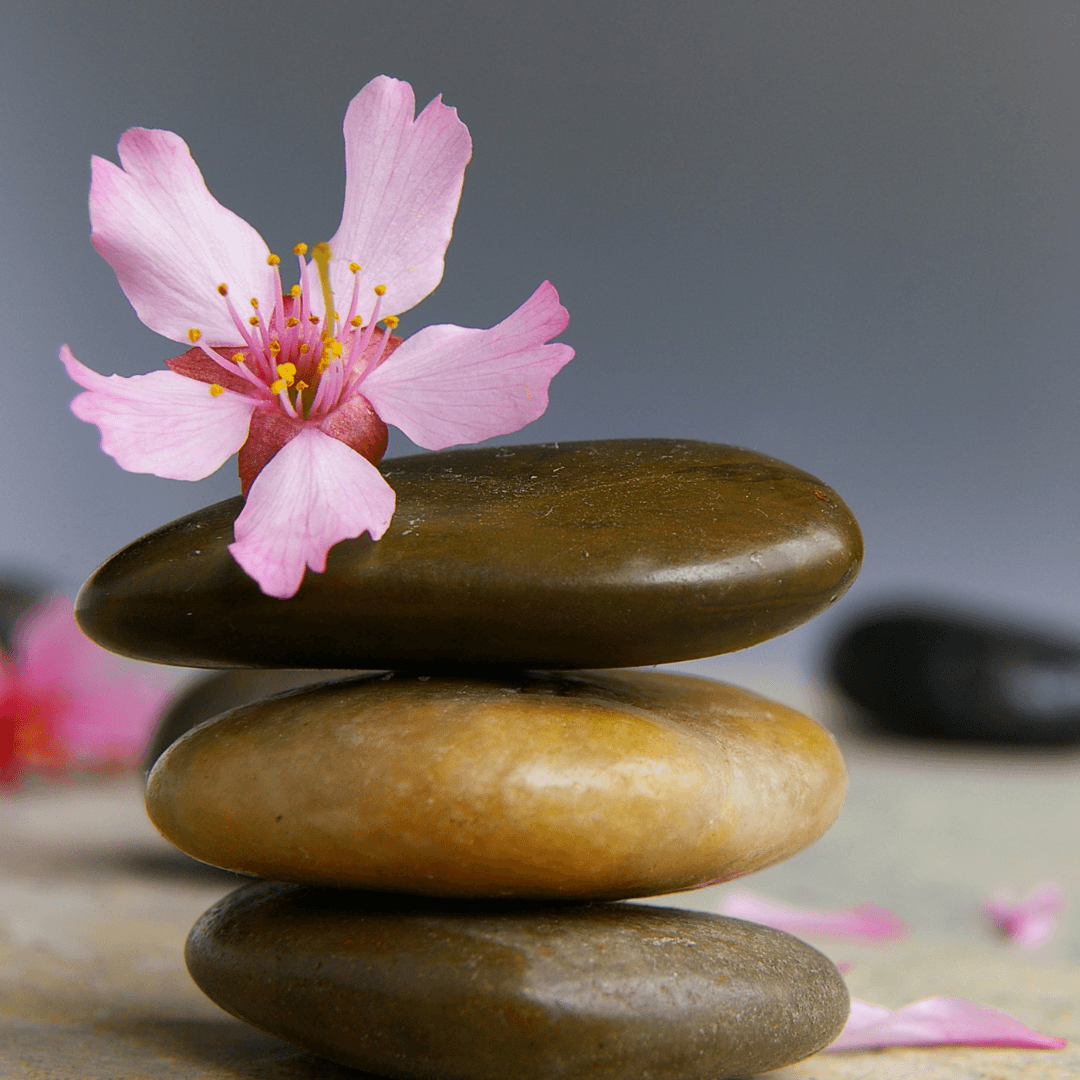
1. Holistic Well-Being
Natural methods to relieve tension prioritize holistic well-being, recognizing the mind's and body's interconnectedness.
Techniques like meditation and yoga address the root causes of tension, promoting overall health.
2. Minimized Side Effects
Unlike some pharmaceutical interventions, natural approaches often involve fewer or no side effects.
This minimizes the risk of adverse reactions, dependencies, and other complications associated with synthetic medications.
3. Long-Term Resilience
Natural tension-relief methods, such as mindfulness practices and herbal remedies, help build resilience against chronic tension. These techniques aim for sustainable stress management and foster long-term benefits.
4. Empowerment
Engaging in natural tension-relief practices empowers individuals to participate actively in their health.
It encourages a sense of control and self-awareness, allowing people to develop personalized strategies for tension management.
5. Integration Into Daily Life
Natural tension-relief techniques can seamlessly integrate into daily routines. Practices like deep breathing, aromatherapy, or short meditation sessions can be easily incorporated, making them accessible for consistent use.
6. Promotion Of Relaxation
Natural methods promote relaxation, a key element in tension reduction. Techniques such as progressive muscle relaxation, herbal teas, or aromatherapy contribute to a sense of calm, positively impacting various aspects of health.
7. Support For Mental Health
Many natural tension-relief practices, including herbal supplements and mindfulness meditation, have been shown to support mental health.
They may alleviate symptoms associated with anxiety, depression, and other stress-related disorders.
8. Enhanced Quality Of Life
By relieving tension naturally, individuals often experience improvements in various aspects of life, including sleep quality, mood stability, energy levels, and overall quality of life. This holistic approach contributes to a positive and sustainable lifestyle.
Exploring How To Relieve Tension Naturally
The search for peace of mind becomes vital in the busyness of contemporary life, where stress appears to be an unwanted companion.
Imagine that there is a calm garden of natural remedies hidden away amid all the chaos in the world and that every flower and leaf can calm the body and the soul. Tension can be released naturally in various ways, such as:

1. Mindfulness And Meditation To Relieve Tension Naturally
In pursuing naturally relieving tension, mindfulness and meditation emerge as ancient yet potent practices offering profound benefits in today's fast-paced world.
By cultivating present-moment awareness, mindfulness allows individuals to observe their thoughts and emotions without judgment, thereby reducing the grip of stress and anxiety.
Meditation provides a sanctuary for the mind through focused attention or open awareness, fostering inner peace and clarity.
Deep breathing techniques, like box or diaphragmatic breathing, help people relax and ground themselves by synchronizing their breath with their body's sensations.
People can picture calm scenes or landscapes through guided imagery, taking their minds to a stress-free haven far from their daily worries.
To facilitate physical relaxation and the release of tension, progressive muscle relaxation entails methodically tensing and relaxing muscle groups.
Together, these practices form a powerful toolkit for navigating life's challenges with resilience and grace, allowing individuals to find calm amidst the chaos.

2. Regular Exercise To Relieve Tension
Regular exercise is a cornerstone for tension relief and overall well-being. Whether it's a brisk walk through nature's embrace, the rhythmic pounding of feet on the pavement during a jog, the deliberate movements of yoga, or the soothing strokes through the water in swimming, physical activity offers a sanctuary for both body and mind.
How to relieve tension naturally becomes an embodied practice through regular physical activity, seamlessly integrating into our daily routines to manage stress.
Exercise alleviates tension by releasing endorphins, nature's mood enhancers, fostering a sense of euphoria and contentment.
Moreover, engaging in physical activity distracts from daily stressors, allowing individuals to focus on the present moment and the sensations of movement.
With each step, stretch, or stroke, the body sheds the weight of tension, leaving a refreshed and invigorated spirit ready to face the challenges ahead.

3. Healthy Lifestyle Choices
Relieving tension naturally can also involve incorporating mindfulness practices such as meditation and deep breathing exercises into daily routines.
These practices can promote relaxation and reduce stress's impact on the body and mind.
In relieving tension naturally, embracing a healthy lifestyle through balanced nutrition and adequate hydration is a foundational step toward holistic wellness and stress management.
A well-proportioned diet full of wholesome whole foods, such as fruits, vegetables, lean meats, and whole grains, gives the body the nutrients it needs to function at its best and withstand stress.
Adequate hydration ensures proper bodily functions and helps flush out toxins that contribute to tension and fatigue.
Equally crucial is prioritizing sufficient sleep, as quality rest rejuvenates the body and mind, replenishing energy stores and enhancing mood regulation.
Moreover, steering clear of stimulants like excessive caffeine, alcohol, and nicotine can prevent spikes in stress levels and promote a calmer state of being.
By adopting these healthy lifestyle choices, individuals cultivate a strong foundation for managing stress effectively and nurturing their overall well-being.

4. Time Management
Effective time management serves as a powerful antidote to the chaos of modern life, offering a structured approach to mitigating stress.
By organizing tasks and establishing realistic goals, individuals gain clarity and direction, reducing the likelihood of feeling overwhelmed by the demands of daily life.
Prioritizing activities allows for a focused allocation of time and energy to tasks of greatest importance, minimizing the impact of distractions and uncertainties.
Moreover, scheduling regular breaks throughout the day provides opportunities for rest and rejuvenation, preventing burnout and maintaining productivity levels.
With a well-honed time management strategy, individuals can navigate their responsibilities more efficiently and confidently, fostering a sense of control and mastery over their circumstances.
Ultimately, by mastering time management techniques, individuals empower themselves to cultivate a harmonious balance between productivity and well-being.
5. Social Support
Social support is a cornerstone of resilience, offering a vital lifeline during times of stress and adversity.
Connecting with loved ones through shared activities or heartfelt conversations provides a sense of belonging and comfort, easing stress.
Talking to friends or family members about concerns and challenges can offer emotional relief and perspective, reminding individuals that they are not alone in their struggles.
Additionally, seeking support from a therapist or counsellor can provide a safe space for exploring feelings and developing coping strategies, further bolstering resilience and emotional well-being.
Social support is crucial in navigating life's ups and downs with greater resilience and grace, whether it's a shoulder to lean on, a listening ear, or professional guidance.

6. Spending Time In Nature To Relieve Tension
Spending time in nature is a powerful way to relieve tension naturally. It offers a sanctuary for the soul and provides a rejuvenating escape from the stresses of modern life.
Whether it's immersing oneself in the tranquillity of a forest, feeling the earth beneath one's feet while gardening, or strolling through a serene park, the healing power of nature is undeniable.
Nature's sights, sounds, and smells relax the body and mind, lowering tension and encouraging rest.
Research has indicated that spending time in green areas can improve mood, lower cortisol levels, and lower blood pressure.
Nature provides a sense of awe and wonder, reminding individuals of the beauty and interconnectedness of all living things.
Individuals can rejuvenate their spirits and cultivate greater well-being by carving out time to commune with nature.

7. Hobbies And Creative Outlets
Hobbies and artistic endeavours can be beneficial means of escaping the stresses of everyday life and creating a haven where people can fully commit to fulfilling and joyful activities.
Whether picking up a paintbrush to create a colourful masterpiece, strumming the strings of a guitar to produce melodious tunes, or penning down thoughts and stories through writing, engaging in creative pursuits stimulates the mind and nourishes the soul.
These activities serve as a form of self-expression, allowing individuals to channel their emotions and thoughts into tangible creations.
Moreover, the immersive nature of hobbies and creative endeavours distracts from stressors, providing a welcome respite from worries and anxieties.
Carving out time for these pursuits nurtures creativity and cultivates a sense of balance and well-being.

8. Limiting Screen Time To Relieve Tension
In pursuing how to relieve tension, limiting screen time naturally emerges as a vital strategy in today's digital age to alleviate stress and promote overall well-being.
Regular use of electronics, including computers, televisions, and smartphones, can cause sleep disturbances and elevated stress levels.
Regular breaks from screens can lessen eye strain and mental exhaustion by giving your eyes and mind a chance to rest.
Reducing screen time before bed is especially crucial because blue light from electronics can interfere with the body's natural circadian rhythm, making it harder to fall asleep and stay asleep.
Instead, calming activities like reading a book, practicing relaxation techniques, or enjoying quiet time with loved ones can promote relaxation and prepare the mind and body for restorative sleep.
Prioritizing screen-free periods can help individuals create healthier habits and improve their overall quality of life.

9. Self-Care Practices
Self-care practices are pivotal in nurturing one's physical, emotional, and mental well-being, offering a sanctuary of replenishment amidst life's demands.
Whether it's sinking into a warm bath infused with soothing essential oils, allowing the gentle scents of aromatherapy to calm the senses, or surrendering to the healing touch of a massage, these activities provide a blissful retreat for the body and mind.
By carving out time for self-care rituals, individuals honour their need for relaxation and rejuvenation, replenishing depleted energy reserves and alleviating the accumulated tensions of daily life.
Moreover, self-care fosters a deeper connection with oneself, encouraging self-awareness and self-compassion.
Engaging in self-care nourishes the soul, whether it's a simple act of pampering or a mindful moment of solitude. It cultivates a sense of balance, resilience, and inner peace in life's journey.

10. Laughter And Humor
Laughter and humour are powerful antidotes to stress, offering a lighthearted escape from life's challenges.
Whether watching a hilarious movie that leaves you in stitches, diving into the pages of a witty book that tickles your funny bone, or sharing joyful moments with friends who effortlessly bring smiles, laughter can lift your spirits and dissolve tension.
Endorphins are naturally occurring substances in the body that elevate mood, induce relaxation, and lower stress-related hormones when you laugh.
Humour fosters a sense of connection and camaraderie, strengthening bonds with others and fostering a supportive social network.
By incorporating laughter and humour into your daily life, you infuse joy and fun into your experiences and fortify your resilience to navigate life's ups and downs with a lighter heart and a brighter outlook.

11. Adequate Hydration To Relieve Tension Naturally
Ensuring sufficient hydration is a fundamental aspect of relieving tension naturally. It supports stress management and overall health by optimizing bodily functions and preventing feelings of fatigue and tension.
Water is crucial in numerous bodily functions, including regulating temperature, flushing out toxins, and transporting nutrients to cells. Even a small amount of dehydration can cause tension, irritability, and fatigue.
People drink enough water throughout the day, sustain optimal body functions, and stay hydrated, encouraging energy and grit.
Additionally, water consumption improves cognitive function by enhancing focus and concentration, both beneficial under pressure.
Carrying a water bottle and sipping regularly serves as a simple yet potent strategy for maintaining hydration levels and supporting well-being, ultimately contributing to a greater sense of balance and vitality in daily life.
12. Herbal Remedies
Herbal remedies have long been revered for their natural calming properties. They offer a gentle and holistic approach to stress relief.
Relieving tension naturally becomes essential in today's fast-paced world, and nature provides abundant answers.
Chamomile, lavender, and valerian root are renowned for their ability to soothe the mind and body.
Chamomile, often consumed as a fragrant tea, boasts mild sedative effects that can promote relaxation and ease tension.
With its calming aroma, lavender is commonly used in aromatherapy or as an herbal supplement to induce a sense of tranquillity and improve sleep quality.
Valerian root, known for its calming and soothing properties, can be taken as a supplement to alleviate anxiety and promote restful sleep.
By incorporating these herbs into daily routines as teas or supplements, individuals can harness the power of nature to cultivate a greater sense of calmness and well-being, providing a natural remedy for the stresses of modern life.
13. Aromatherapy To Relieve Tension Naturally
Aromatherapy provides a sensory experience for both the mind and body. It utilizes the healing qualities of essential oils to enhance relaxation and overall well-being.
Aromatherapy uses essential oils like peppermint, known for its stimulating properties; eucalyptus, prized for its refreshing scent; and lavender, known for its calming effects.
Whether diffused into the air through a specialized diffuser or applied topically during a massage, these oils can evoke a sense of tranquillity, alleviate stress, and ease tension in both the mind and body.
The inhalation of aromatic molecules stimulates the olfactory system, triggering emotional responses and promoting relaxation.
When applied to the skin, essential oils can be absorbed into the bloodstream, enhancing their therapeutic benefits.
By incorporating aromatherapy into daily routines, individuals can create a soothing atmosphere that supports mental clarity, emotional balance, and physical relaxation.
14. Acupressure And Massage To Relieve Tension Naturally
In exploring how to relieve tension naturally, acupressure and massage emerge as ancient healing modalities that offer profound relief from stress by stimulating energy flow, releasing muscular tension, and promoting overall relaxation and well-being.
Acupressure aims to release tension and encourage energy flow by applying pressure to particular body points, usually along meridian lines.
Focusing on these pressure points also helps improve circulation, ease muscle tension, and create a relaxing atmosphere.
Likewise, massage therapy uses various techniques to manipulate soft tissues to relieve stress and encourage relaxation.
These techniques include kneading, stroking, and stretching. Both professional massage therapy sessions and self-administered acupressure offer therapeutic benefits for the body and mind.
In addition to promoting a deep sense of relaxation and well-being, massage's calming touch and rhythmic movements can help lessen mental tension, increase flexibility, and ease muscle stiffness.

15. Visualization To Relieve Tension Naturally
Visualization is a powerful technique for reducing stress and promoting relaxation. It harnesses the mind's ability to create calming mental imagery.
By closing their eyes and conjuring up vivid scenes of tranquil environments, such as a sun-kissed beach or a lush forest, individuals can transport themselves to profound serenity and inner peace.
As the mind immerses itself in these idyllic landscapes, the body responds by releasing tension and slowing down the heart rate, promoting deep relaxation.
Visualization allows individuals to momentarily escape the hustle and bustle of daily life, providing a mental refuge from stressors and worries.
With regular practice, visualization can become a valuable tool for managing stress, cultivating mindfulness, and enhancing overall well-being, offering a pathway to inner tranquillity amidst life's challenges.
Everyone is different, so exploring various techniques and finding what works best for you is essential.
Combining these natural tension-relief methods into your daily routine can help you manage stress effectively and improve your overall quality of life.
Conclusion
In conclusion, the pursuit of relieving tension naturally underscores the imperative for holistic well-being in today's fast-paced world.
It offers sustainable methods that nurture resilience, vitality, and a deeper connection with oneself and the world.
These techniques provide immediate relief from stress and foster long-term resilience and well-being by nurturing a deeper connection with oneself and the world around us.
Instead of short-term or hastily applied solutions, natural tension relief techniques support long-term health and vitality, enhancing all facets of life, from mental and emotional stability to physical well-being.
In the end, accepting life's obstacles with more clarity, resiliency, and inner peace is what it really means to release tension naturally.
By incorporating these natural methods into their daily routines, people can start a journey towards a more harmonious and fulfilling life where stress becomes a catalyst for growth and self-discovery rather than a burden.
I trust you enjoyed this article about How To Relieve Tension Naturally. Please stay tuned for more blog posts soon.
JeannetteZ
>>>Please click here to read my all-inclusive article about Lessons That Will Teach You All About Stress<<<
>>>Are you interested in Natural Healing And Stress Relief through Herbs? Please click here for my #1 Recommendation<<<
Your Opinion Is Important To Me
Do you have thoughts, ideas, or questions? I would love to hear from you. Please leave me your questions, experiences, and remarks about How To Relieve Tension Naturally in the comments section below. You can also reach me by email at Jeannette@Close-To-Nature.org.
Disclosure
This post may contain affiliate links. I earn from qualifying purchases as an Amazon Associate and other affiliate programs. Please read my full affiliate disclosure.
You might also enjoy these blog posts:
Best Stress Relief Toys For Adults
What Are The Best Stress Management Techniques?
What Are The Negative Effects Of Stress?
Is Yoga Good For Stress Relief?






